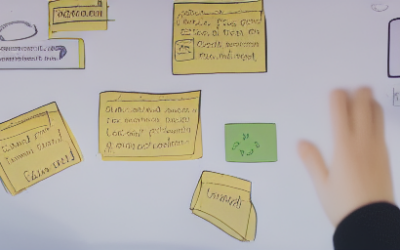Blockchain technology is revolutionizing the way data is stored, shared and processed. As a result, there are now many different blockchain platforms available for businesses, developers and even individuals to use. The top blockchain platforms offer a wide variety of features and tools, making them some of the most popular platforms on the market.
Tech Blog
Tech Insights, Information, and InspirationMachine Learning in Healthcare
Machine learning is a rapidly evolving technology that has the potential to revolutionize healthcare. Machine learning is an application of artificial intelligence (AI) that provides systems the ability to automatically learn and improve from experience without being explicitly programmed. With machine learning, healthcare professionals can access and analyze data faster, more accurately and at a lower cost than ever before.
Top Java Frameworks
Java is a popular programming language that is used for developing a wide variety of software applications. There are numerous Java frameworks available for developers to use to create their applications. These frameworks provide developers with a set of components that can be used to create their applications quickly and easily.
Machine Learning in Manufacturing
Machine Learning is quickly becoming a valuable tool for manufacturers. By leveraging powerful algorithms and predictive analytics, Machine Learning can help identify patterns, detect abnormalities, and even predict the future. This technology is being used to monitor the performance of industrial equipment and processes, optimize supply chains, and even reduce downtime.
Next.js vs React.js
Next.js vs React.js are both powerful and popular JavaScript libraries, but they serve different purposes. Next.js is used for building universal web applications with server-side rendering, while React.js is used for building user interfaces with reusable components.
LMS Systems: Modern Learning Solutions
A Learning Management System (LMS) is a software application that enables administrators, educators, and learners to manage, track, and deliver web-based educational courses and training programs. LMSs are used to deliver online training, track learner progress, and provide reporting and assessment capabilities. LMSs provide a platform for administrators and instructors to create, deliver, and manage content, assessments, and communication with learners.
Functional Programming vs OOP
Both OOP and Functional Programming have their advantages and disadvantages. OOP is great for code re-use and scalability, but can lead to complexity and hard to debug code. FP is great for code readability and maintainability, but can lead to code that is difficult to optimize and parallelize. Ultimately, the best choice of programming paradigm depends on the project and the programmer’s preferences.
What is Design Thinking?
Design thinking is an iterative problem-solving process that combines creative and analytical approaches to identify and solve complex problems. The process is based on understanding users, exploring and challenging assumptions, redefining problems, and creating innovative solutions. Design thinking uses methods from the fields of design, engineering, psychology and anthropology to develop creative insights and solutions that meet customer needs.
Kotlin vs Java
Kotlin vs Java are both popular programming languages used for developing applications. Both languages have a lot of similarities in terms of syntax, data types, object-oriented programming, and more. However, they also have several key differences.
What is Kotlin? An Introduction
Kotlin is a modern open-source programming language developed by JetBrains, the makers of the popular IntelliJ IDEA Java IDE. It combines object-oriented and functional programming features and is designed to be a pragmatic language with a simple and concise syntax. Kotlin is interoperable with Java, which means that it can be used to develop Android applications.
Get In Touch
UseTech Design, LLC
TROY, MI • BLOOMFIELD HILLS, MI
Call or text +1(734) 367-4100










